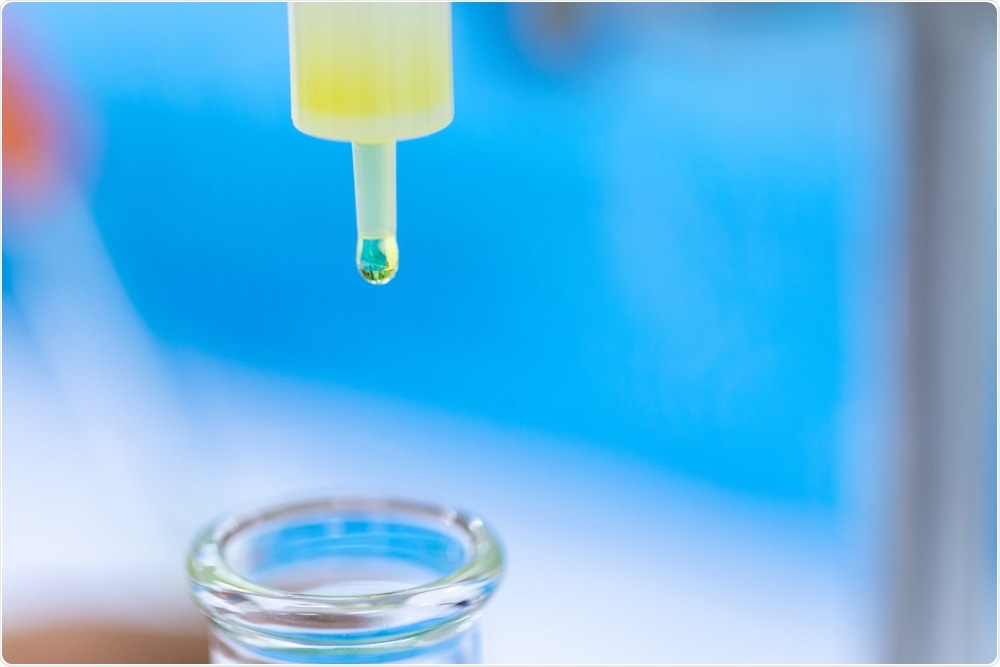The production of the nucleocapsid (N) and spike (S) proteins for diagnostic testing to confirm the presence of the severe acute respiratory syndrome coronavirus 2 (SARS-CoV-2) is both costly and time-consuming. However, new research published on the preprint server bioRxiv* discusses an alternative method of purifying the SARS-CoV-2 N protein using only metal exchange chromatography (IMAC) and denaturing conditions, while simultaneously eliminating the need for strong solubilizing or sonication agents.
 Study: Expression and novel alternative purification of the recombinant nucleocapsid (N) protein of SARS-CoV-2 in Escherichia coli for the serodiagnosis of COVID-19. Image Credit: Rattiya Thongdumhyu / Shutterstock.com
Study: Expression and novel alternative purification of the recombinant nucleocapsid (N) protein of SARS-CoV-2 in Escherichia coli for the serodiagnosis of COVID-19. Image Credit: Rattiya Thongdumhyu / Shutterstock.com

 *Important notice: bioRxiv publishes preliminary scientific reports that are not peer-reviewed and, therefore, should not be regarded as conclusive, guide clinical practice/health-related behavior, or treated as established information.
*Important notice: bioRxiv publishes preliminary scientific reports that are not peer-reviewed and, therefore, should not be regarded as conclusive, guide clinical practice/health-related behavior, or treated as established information.
“The advantage resulting from the use of the denaturing condition is evident. It is then possible to use this methodology routinely to obtain recombinant nucleoprotein antigen, conveniently useful in diagnostic assays, given the complete absence of reaction with COVID-19 negative sera and its high stability, making it possible to conceive the development of a diagnostic assay on a large scale such as ELISA kits or rapid tests.”
The development of an alternative method for the production of the N protein has the potential to inexpensively streamline the process. Aside from diagnostic purposes, it is also crucial to obtain genomic information on SARS-CoV-2 variants as they emerged in a rapid and cost-efficient manner.
The results of the current study suggest that their combined approach could be done on a large scale to obtain this antigen for coronavirus disease 2019 (COVID-19) serological diagnostic testing.
Expressing nucleotide sequence of SARS-CoV-2 N protein
The N protein is one of two of the main antigens for SARS-CoV-2. The coding sequence (region 28274-29533) of the N protein was used for the current study, which has 1,289 base pairs and a theoretical 45.6 kDa protein.
Instead of eukaryote cells, the nucleotide sequence was expressed in Escherichia coli (E. coli) cells. However, the codon bias changed, the N protein was acquired through chemical synthesis and was cloned in the expression plasmid pET-20b. For the purposes of the current study, this protein was selected because it is less expensive to express and purify if using prokaryote cells.
“This vector has an export sequence to the periplasm (pelb) that allows the protein to be purified by osmotic shock and a tag of six histidines at the C-terminal end that allows it to be purified by IMAC.”
The pET-20b plasmid was used as a template to increase the insert through forward and reverse oligos of T7, which created a band of 1610 base pairs (bp) that corresponded to the insert plus part of the vector.
Purification methods
Because of nucleocapsid forming inclusion bodies, the researchers purified the N protein through hybrid and denaturing methods.
The hybrid approach uses guanidine to solubilize the inclusion bodies. During this process, the resulting supernatant is placed on the metal affinity column, washed with a guanidine buffer to get rid of unfixed protein, and later washed with a PBS buffer without guanidine to remove non-specific proteins that may have stuck to the column. Finally, the protein is eluted with PBS that contains 250 millimolar (250 mM) imidazole.
Comparatively, the denaturing approach begins with a cell pellet that is resuspended in PBS with 6 M urea, shaken for 2 hours, and subsequently centrifuged. After the supernatant is solubilized with urea, it is then subjected to the IMAC columns.
After both the hybrid and denaturation experiments were conducted, Western blot was then used to confirm the presence of the antigenic protein.
Study findings
Unlike the denatured method that produced a homogenous fraction, the fraction produced by the hybrid method had little homogeneity and was unstable, as demonstrated by its degradation when exposed to protease inhibitors at –20°C. Another advantage of the denaturing method is that the fraction’s stability remains stable, even two months after purification.
Taken together, the denaturing method offers a simple way to produce the recombinant N antigen for its use in diagnostic assays as a result of its high stability. Furthermore, the N protein produced through the denaturing method appeared to be unaltered, reproducible and did not react with any COVID-19 negative sera.

 *Important notice: bioRxiv publishes preliminary scientific reports that are not peer-reviewed and, therefore, should not be regarded as conclusive, guide clinical practice/health-related behavior, or treated as established information.
*Important notice: bioRxiv publishes preliminary scientific reports that are not peer-reviewed and, therefore, should not be regarded as conclusive, guide clinical practice/health-related behavior, or treated as established information.